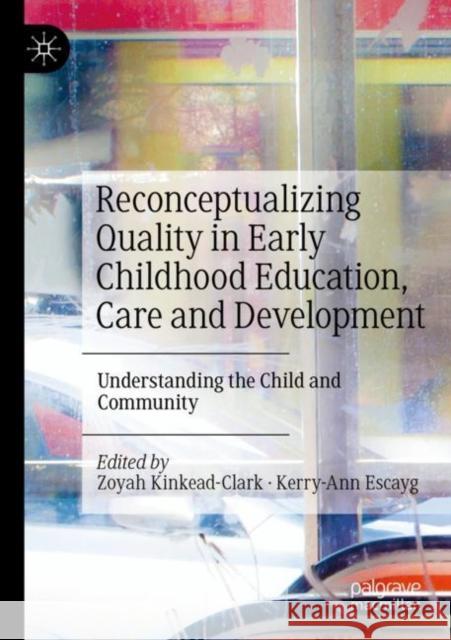Reconceptualizing Quality in Early Childhood Education, Care and Development: Understanding the Child and Community » książka
topmenu
Reconceptualizing Quality in Early Childhood Education, Care and Development: Understanding the Child and Community
ISBN-13: 9783030690151 / Angielski / Miękka / 2022
Reconceptualizing Quality in Early Childhood Education, Care and Development: Understanding the Child and Community
ISBN-13: 9783030690151 / Angielski / Miękka / 2022
cena 603,81
(netto: 575,06 VAT: 5%)
Najniższa cena z 30 dni: 578,30
(netto: 575,06 VAT: 5%)
Najniższa cena z 30 dni: 578,30
Termin realizacji zamówienia:
ok. 22 dni roboczych.
ok. 22 dni roboczych.
Darmowa dostawa!
Recognizing the various ecological contexts that support children’s development while amplifying voices from across the globe, this book challenges narrow interpretations of quality and best practice. Each author offers a unique perspective on issues germane to the field of early childhood education: perceptions of children, curriculum, teacher education, and play-based learning. An innovative, timely, and much-needed contribution, this book represents an inclusive collection of theoretical and cultural knowledge, as well as research. Such a diverse multicentric lens opens new intellectual pathways for authentic, reciprocal knowledge exchange, while ensuring that a reimagining of early childhood education remains at the core of our teaching practice, scholarship, and activism. This book invites everyone to imagine, to dare to believe, to hope, and to act—in the interests of children, in the interests of communities and families, and in the moral precepts of equity, inclusion and justice.











